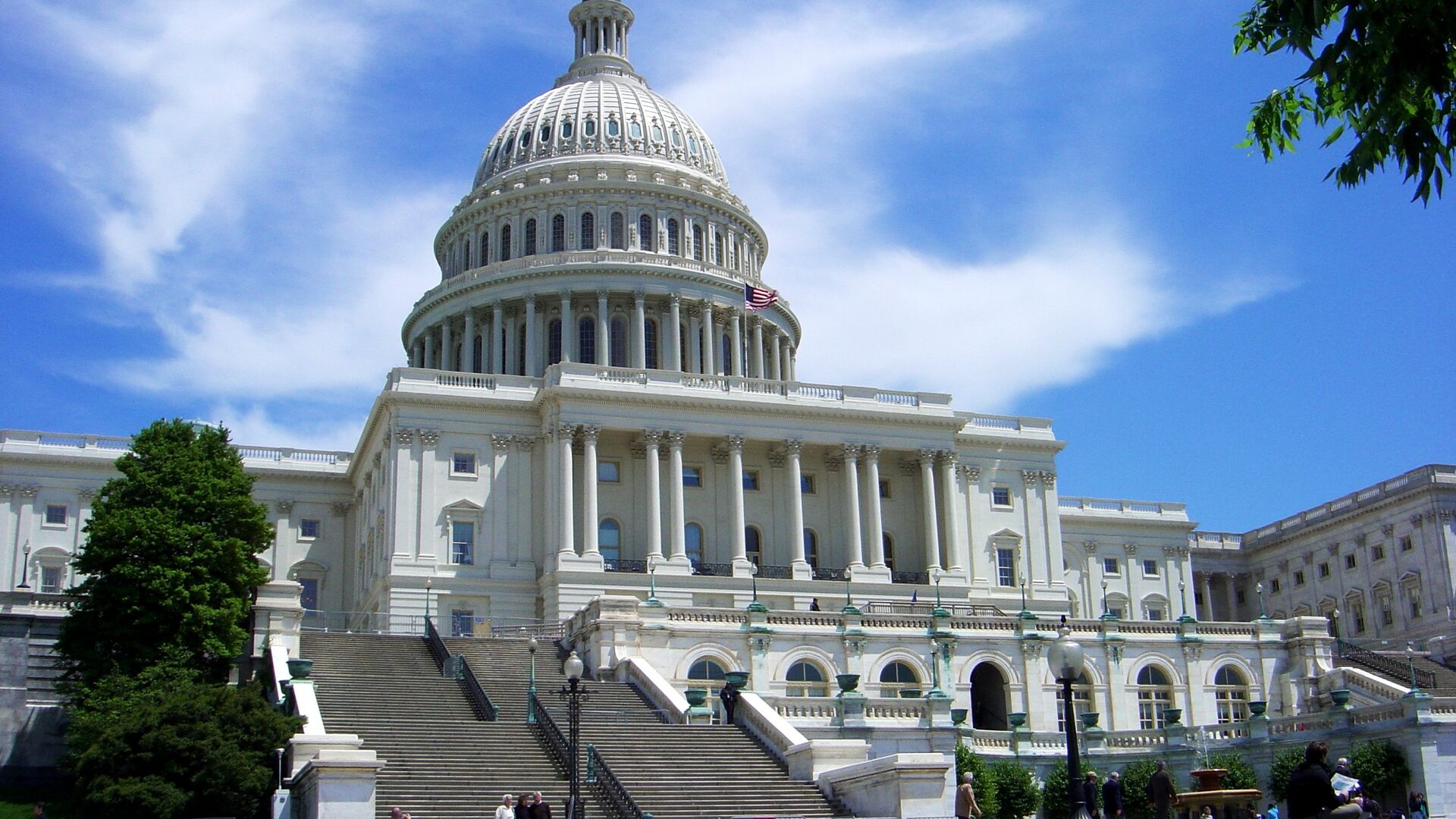Senate Passes Last Minute Bill to Avoid Gov’t Shutdown Amid Congressional Deadlock Over Budget, Debt
17:34 GMT 30.09.2021 (Updated: 18:17 GMT 30.09.2021)
Subscribe
Eariler in the day, House Speaker Nancy Pelosi said the Democratic Party-controlled chamber would vote on the stopgap funding bill immediately after the Senate approved it.
The US Senate voted on Thursday to approve a stopgap funding measure to keep the government open until 3 December.
The measure, passed by a 65-35 majority, made it through the Senate after Democrats and Republicans reached an emergency agreement on Wednesday to keep the government from shutting down after a congressional deadlock earlier in the week prevented the president's party from raising the debt ceiling and getting its proposed $3.5 trillion, ten-year budget approved. The stopgap funding does not include a debt limit increase among its provisions, with Senate Minority Leader Mitch McConnell characterising the vote as a victory for Republicans.
Government funding for the current fiscal year will expire at midnight Thursday. The deadlock threatened to halt payments to all federal employees, as well as a range of public services and social support.
House Speaker Nancy Pelosi promised earlier on Thursday that the Democratic Party-controlled House would vote on the bill to avert a shutdown as soon as the Senate passed it and send it on to the president's desk for his signature.
The passage of the emergency funding bill came after Treasury Secretary Janet Yellen warned earlier this week that the United States would likely run out of money to service its gargantuan debts by 18 October unless lawmakers raised or suspended the debt limit.
On Wednesday, the Congressional Budget Office echoed Yellen's concerns and that Congress has until late October or early November to increase the debt limit or face delays of payments of some government activities, a default on the US's debt obligations, or both.
Also on Wednesday, Senate Majority Leader Chuck Schumer promised to address the debt ceiling issue after the matter of emergency funding for the government was dealt with.
Secretary Yellen warned that a default would be disastrous for millions of families and workers.
— Chuck Schumer (@SenSchumer) September 29, 2021
Senate Republicans have solidified themselves as the party of default.
We are working to raise the debt ceiling and avoid irreparable economic harm to people and families.
Debt experts aren't exactly sure how a default on some or all of America's almost $21 trillion in Treasury obligations would even look like from a technical standpoint, given how unlikely the scenario has always been assumed to be. However, Secretary Yellen and others have expressed concerns that a default would bump the dollar from its vaunted position as the world reserve currency. Fears have also been voiced by market experts, banks and credit rating agencies that a default would spark a major economic crisis and credit crunch worldwide – particularly among those countries which hold large amounts of US debt, or which are dependent on US consumers' buying power for their economic well-being.



